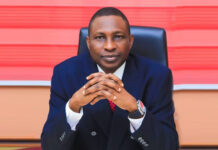In the pursuit to take over power in Nigeria, some political parties have abused the constitution, and the freedom of thought and conscience guaranteed by it. President Goodluck Jonathan stated this at the ongoing Nigerian Bar Association, NBA, conference in Calabar, Cross River State.
President was represented by the Attorney-General of the Federation and Minister of Justice, Mr. Mohammed Adoke (SAN). He said:
“The quest for power and determination of certain persons and sections of the country to wrestle power from the incumbent political office holders have led to the issuance of all manner of threats with grave implications for our national unity.
“The freedom of expression, association and freedom of thought and conscience guaranteed by the Constitution, have unwittingly become tools in the hands of politicians and their associates to promote division, hatred, and discontentment in the polity.”
President identified major challenges that his administration is to address. Some of the challenges are the security of lives and property in the face of increasing global terrorism, protection of people’s rights and liberties in the midst of competing social norms, the need to achieve economic development and improvement in living conditions.
He, however, added that to tackles the listed problems, a joint effort from public and private sectors is needed.
On his part, House of Representatives Speaker, Aminu Tambuwal, noted that desporte possessing remarkable wealth, resources and potential “with which we could build a united nation of prosperous people”, Nigeria has been witnessing emergence of two nations in one:
“There is a nation of prosperity and affluence on the one hand and another nation of poverty and squalor on the other. Yet our desire and expectation is nation building.”
Former Vice-President, Atiku Abubakar criticized what he called a consistent and progressive marginalisation of the vast majority of Nigerians. According to him, the discrimination has brought about policies that contribute to inequitable interpersonal and inter-regional distribution of opportunities.
“This has created situations that propagate rural poverty, urban squalor and general discontent on the one hand, indiscipline, corruption, ostentatious living on the other and social tension and insecurity on the whole,” he added.




